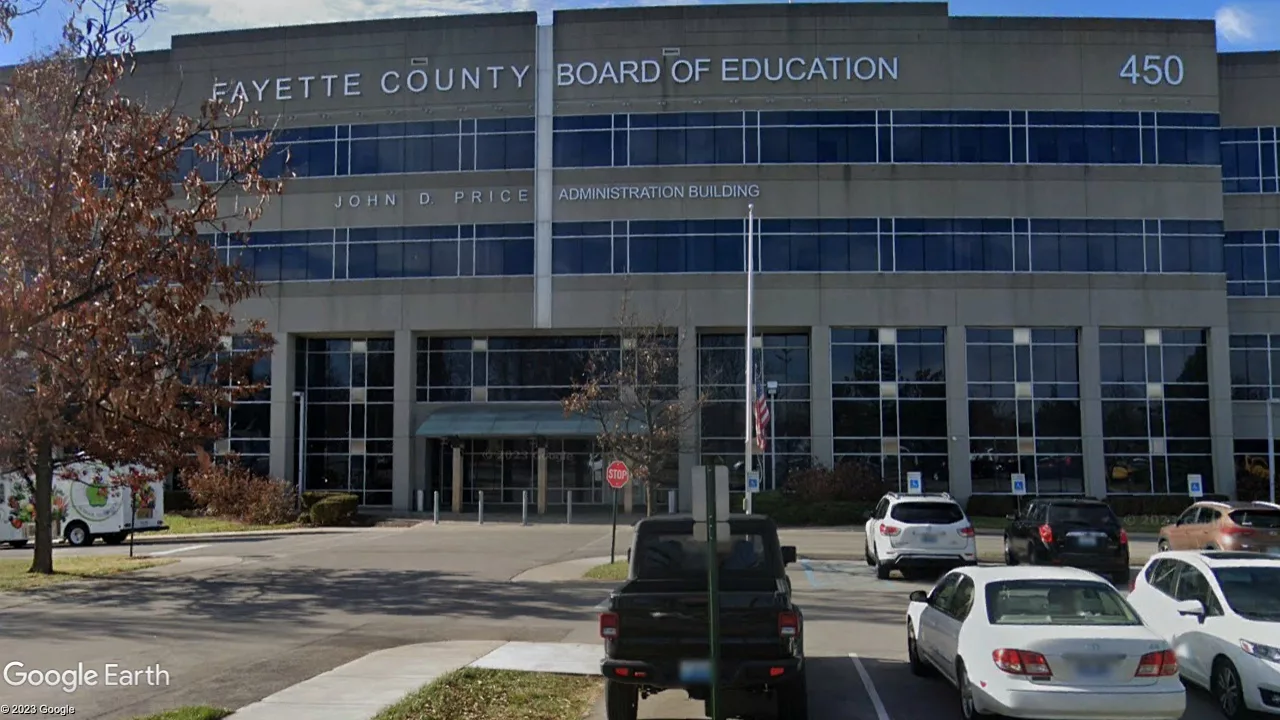School board reconsiders privatizing school nurses. For now.

by Paul Oliva, The Lexington Times
LEXINGTON, KY — Fayette County Public Schools (FCPS), in a crucial pivot, is now negotiating to extend its longstanding contract with the Lexington-Fayette Health Department for school nursing services. This move marks a significant shift from Superintendent Demetrius Liggins’ initial proposal to privatize these services and cut costs. The Fayette County Board of Education’s decision to reconsider Monday came in response to a vocal and concerted pushback from the community, underscoring the deep-seated concerns over the potential impacts on student health care.
The board’s action builds upon a broader narrative of community engagement and advocacy in Fayette County educational policy, especially in the context of Superintendent Liggins’ administration, which has faced separate accusations of pursuing ‘union-busting’ policies this year.
The Initial Proposal and Community Response
The initial proposal involved ending a nearly 50-year partnership with the Lexington-Fayette Health Department, opting instead for a more cost-effective solution with a new vendor, Maxim Healthcare.
The decision was primarily driven by financial considerations, according to a document released by the school district. Maxim’s bid to provide nursing services was significantly lower, at $3,143,850, compared to the $4,565,138 bid from the health department. The bids were evaluated based on a series of standards, including cost, technical proposal, references, and interviews, with Maxim scoring higher overall.

However, this proposal was met with immediate and vocal opposition from various stakeholders, according to reporting by the Lexington Herald-Leader. Longtime nurses, parents, teachers, and even top officials from the health department raised significant concerns. They questioned the potential loss of quality in nursing care and the disruption of a long-standing community partnership. The prospect of replacing experienced health department nurses with a new, possibly less familiar, workforce was particularly troubling for many.
Critics of the move emphasized the integral role school nurses play in the educational ecosystem. These professionals are not only responsible for attending to students’ immediate health needs but also contribute significantly to overall wellness initiatives and provide crucial support to students with chronic health conditions.
The Board’s Reconsideration
In the face of intense community pushback, the Fayette County Public Schools (FCPS) Board of Education took a step back to reassess its initial decision to replace the Lexington-Fayette Health Department with Maxim Healthcare for providing school nursing services. This reconsideration marked a significant turning point in the narrative, highlighting the board’s responsiveness to public sentiment and concerns.
The school board decided to open negotiations for a one-year extension with the health department, effectively pausing the move towards privatization. This decision was not just a response to the immediate backlash but also a strategic step to allow more time for a thorough evaluation of the options available for school nursing services in the district.
If the extension is approved, the contract between the school district and the health department would continue through June 2025, according to FCPS. This period would be used for conducting a comprehensive study by the district, aimed at exploring the feasibility of different models, including potentially creating an in-house system for hiring nurses.
The decision to extend the health department’s contract also reflected the board’s acknowledgment of the critical role that school nurses play in the education system. Board member Murphy highlighted this sentiment, emphasizing the nurses’ importance in educating the whole child and their contribution to the district’s wellness initiatives. “We recognize the value and importance of having a nurse in every school, the role they play in educating the whole child, and the impact they have on the lives of our children,” he said. “They’ve also been a partner in many of our wellness initiatives.”
This development was a testament to the power of community engagement in shaping educational policies. The vocal opposition from parents, educators, and health professionals played a crucial role in guiding the board’s decision-making process. It demonstrated a collective commitment to preserving the quality of student health care and the value of long-standing community partnerships.
An evolving political landscape at FCPS
Liggins previously faced criticism for his administration’s approach towards the labor union AFT120. The controversy began when Liggins and his administration withdrew recognition of AFT120 as a labor organization, citing a lack of appropriate state paperwork. This action was reportedly in preparation for Senate Bill 7, labeled a ‘union-busting’ bill, which was later deemed unconstitutional. Despite Liggins eventually acknowledging AFT120 as a legitimate union in an email, there were concerns about the district’s actions revealing a preference for top-down decision-making, potentially stifling the voices of rank-and-file educators.
This backdrop of labor tension and the approach to union recognition in FCPS led some educators to suggest privately that the school board was “friendly” to the Liggins administration in situations where critical oversight was necessary. Monday’s decision to negotiate a one-year extension with the Lexington-Fayette Health Department suggests a potential shift or at least a complexity in the board’s dynamics. The board’s willingness to reconsider its decision in light of community feedback could indicate an openness to challenge or at least reevaluate Superintendent Liggins’ agenda.
Together, these events reflect ongoing debates and power dynamics within FCPS.
Top photo credit: Google
Recommended Posts

Kamala Harris needs a VP candidate. Could a governor fit the bill?
Fri, July 26, 2024
After cyber-attack on Jefferson County Clerk, Fayette counterpart discusses precautions
Fri, July 26, 2024
An eastern Kentucky animal shelter is swelling this summer
Fri, July 26, 2024